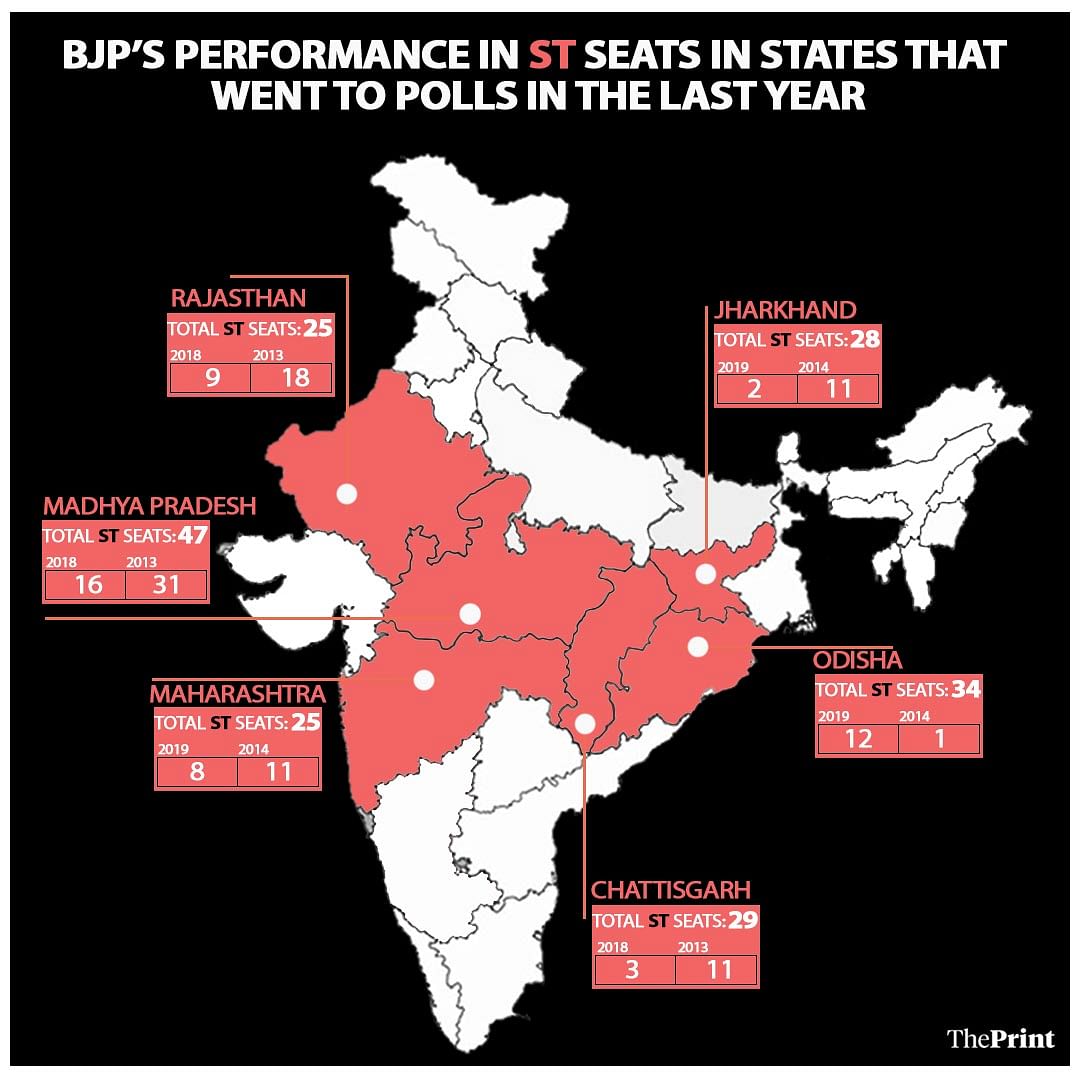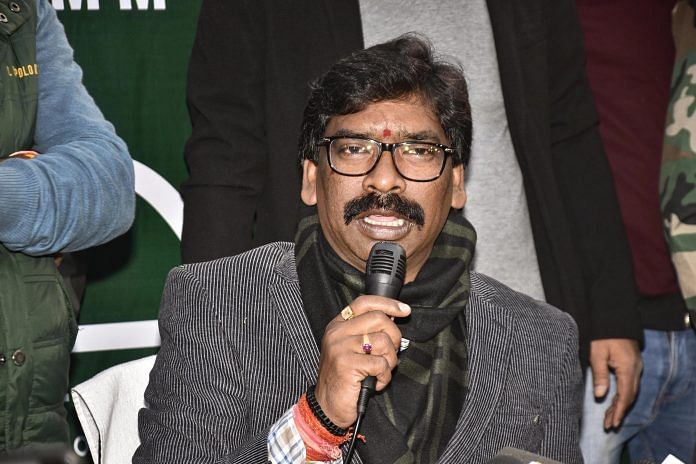New Delhi: The assembly election results in Jharkhand was a setback to the BJP in more ways than one.
The results are in line with the trend of the party’s waning fortunes in Scheduled Tribe (ST) constituencies. In five of the states that held assembly elections in the last year — Jharkhand, Maharashtra, Rajasthan, Chhattisgarh and Madhya Pradesh — the party has won fewer ST seats as opposed to the previous assembly elections.
In every state, a certain number of tribal-dominated seats are reserved for candidates belonging to the Scheduled Tribes. Such seats are allotted in proportion to the ST population in that state.
Take for instance Jharkhand, where the BJP won just two of the total 28 ST seats in the recently-concluded assembly elections. In the 2014 assembly polls, the BJP had won 11 ST seats.
Its performance is no better in the other four states.

In Maharashtra, the BJP won just eight of the 25 ST seats in the November assembly elections. As against this, the party had managed 11 of the tribal seats in 2014.
The dismal trend began with the Chhattisgarh, Rajasthan and Madhya Pradesh elections. In Chhattisgarh, the BJP won just three of the 29 ST seats in the 2018 assembly polls. Five years ago, in 2013, the BJP had won 11 tribal seats.
Similarly, in Madhya Pradesh, the BJP won 16 of the 47 ST seats in December 2018. It had won almost double the seats, 31, in the 2013 Vidhan Sabha elections.
Rajasthan was no better. The party’s ST tally halved to nine in the 2018 assembly elections from the 18 it won in 2013.
The only exception is Odisha, where the BJP’s seat tally in ST constituencies improved. In the 2019 assembly polls, the BJP won 12 of the 34 ST seats in the state as against just one in the 2014 polls.
BJP leaders, on condition of anonymity, said this should be a wake-up call for the party’s national leadership.
“The rout has happened despite the party cadre being active in the tribal-dominated areas,” a BJP Jharkhand unit leader told ThePrint.
Besides the party’s own cadre, its ideological fount, the Rashtriya Swayamsevak Sangh (RSS) and other affiliated organisations such as the Vanvasi Kalyan Sanstha, are also quite active in tribal areas in these states through their network of schools and social work.
An RSS functionary, who did not want to be named, however, told ThePrint that its work should not be linked to elections. “The Sangh work should not be measured as a political outcome.”
Also read: 5 reasons why BJP lost Jharkhand assembly elections
‘Inputs from state workers being ignored’
A senior BJP leader said the party’s poor show in tribal-dominated areas could be on account of the fact that inputs from state unit workers were overlooked.
“It was not only in Jharkhand. It was the same story in Rajasthan, Chhattisgarh or Madhya Pradesh,” the BJP leader said. “Our election strategy was finalised by the central leadership based on limited feedback from a select few state leaders. Nobody heard the karyakartas (workers).”
Another BJP leader, who had worked in Chhattisgarh, said no effort was made to groom tribal leadership in states that have large tribal populations.
“There was no leader who had that kind of a presence or following among the tribals. The candidates who were chosen did not have their ear to the ground,” the leader said.
In Jharkhand, which has over 26 per cent tribal population, the party chose a non-tribal to be the chief ministerial candidate despite repeated feedback that it will be difficult to assuage the sentiment of tribals in the state.
Political analysts say one of the reasons for BJP’s waning influence in ST seats could be the limited attraction to the Hindutva ideology among tribals.
“Hindutva has very limited resonance for tribals. In most of the states that went to elections in the last year, the BJP had campaigned aggressively on its Hindutva agenda instead of local issues,” said political commentator Suhas Palshikar, who taught political science at Savitribhai Phule Pune University.
He added that when a party loses overall in a state, it affects every seat, including the ST seats.
Professor R.K. Satapathy of the North-Eastern Hill University, who closely tracks Odisha politics, said that although organisations like the Vanvasi Kalyan Sanstha work hard on the ground they have to contend with active Christian missionaries.
“Many seats get influenced because of the strong perception that BJP is a pro-Hindu party,” Satapathy said.
Also read: How Hemant Soren turned JMM’s fortunes after 2 poll routs in Jharkhand




Bangalore
If great care is not taken, so will the Dalits.